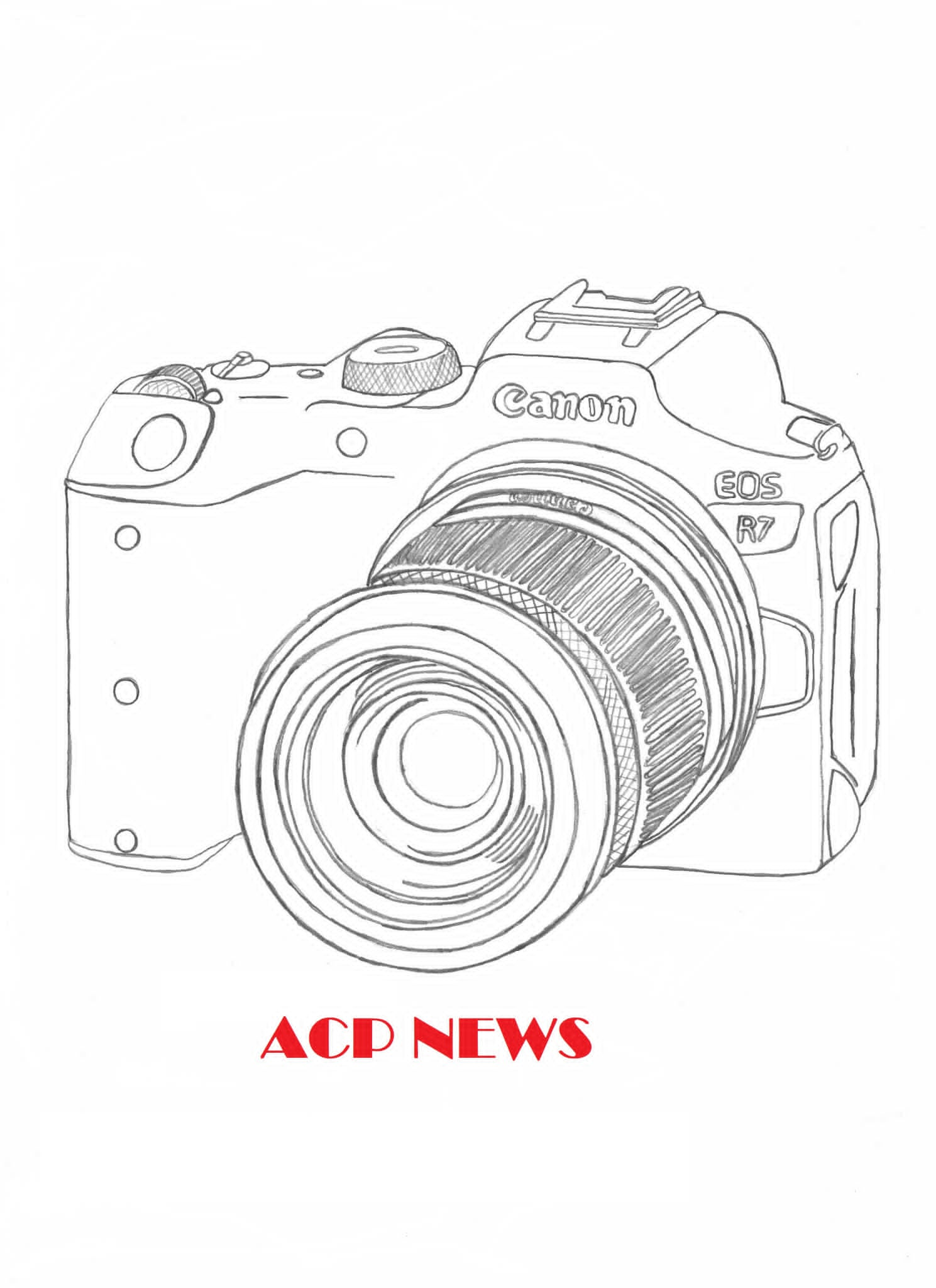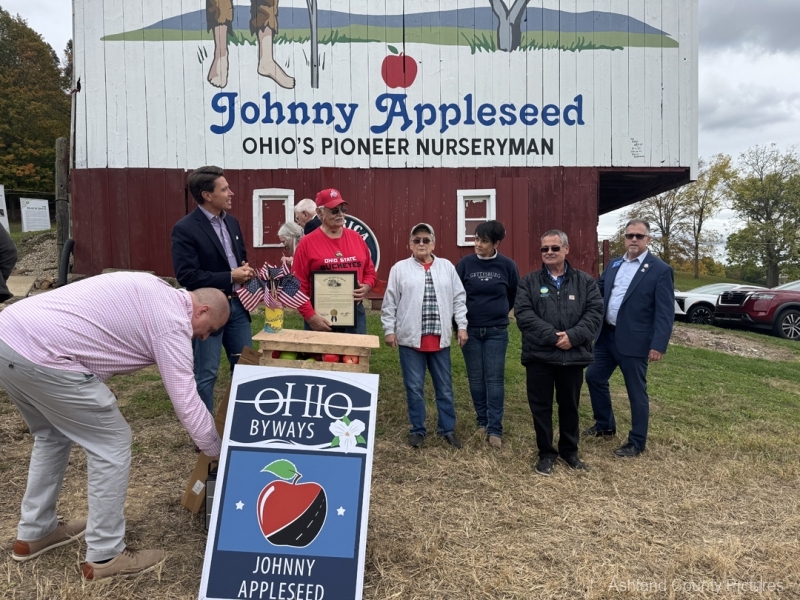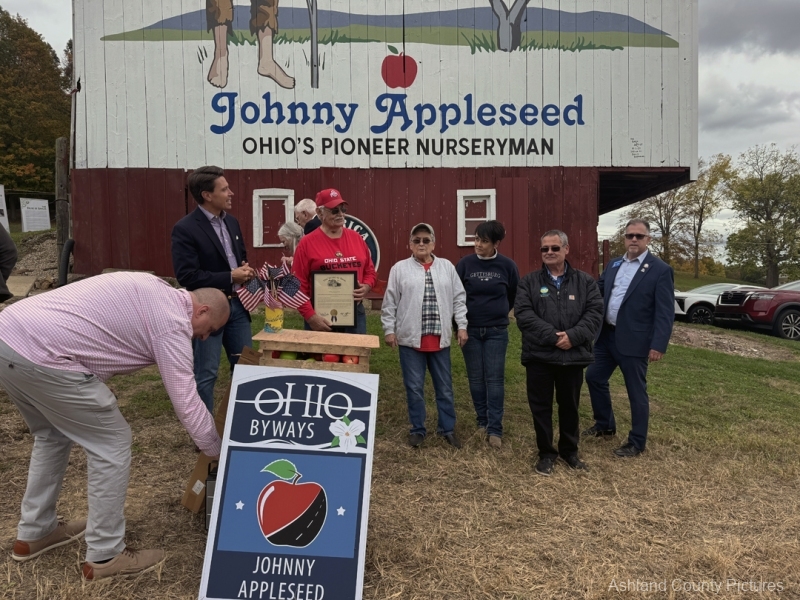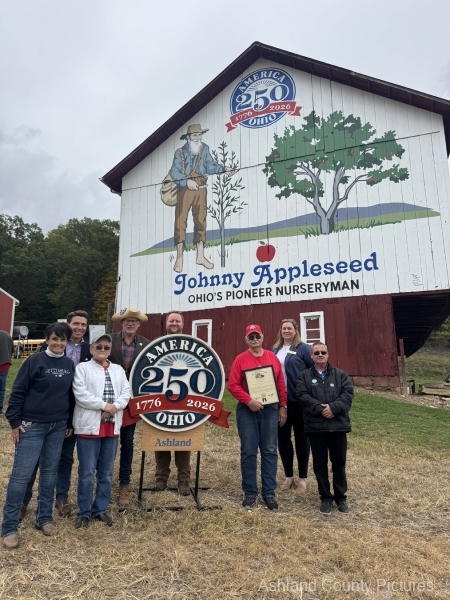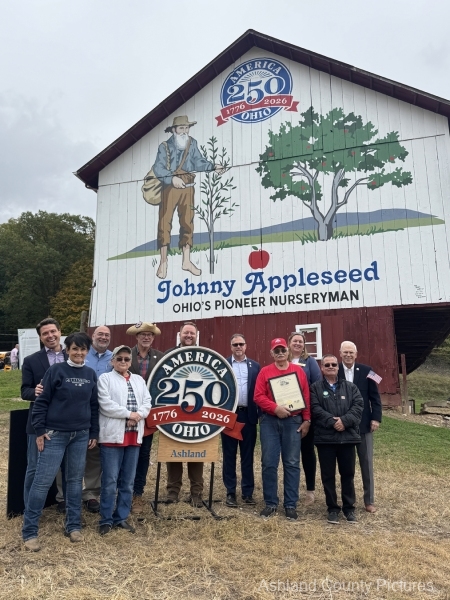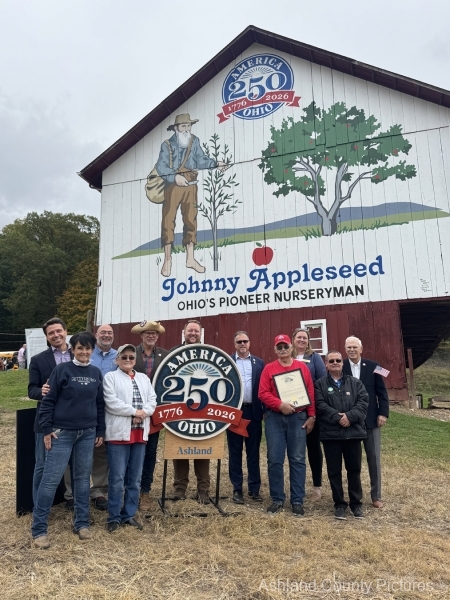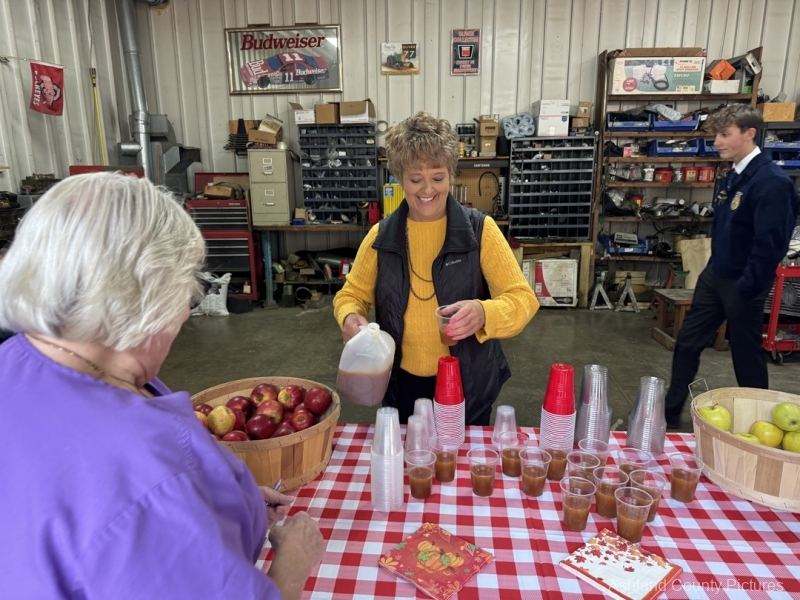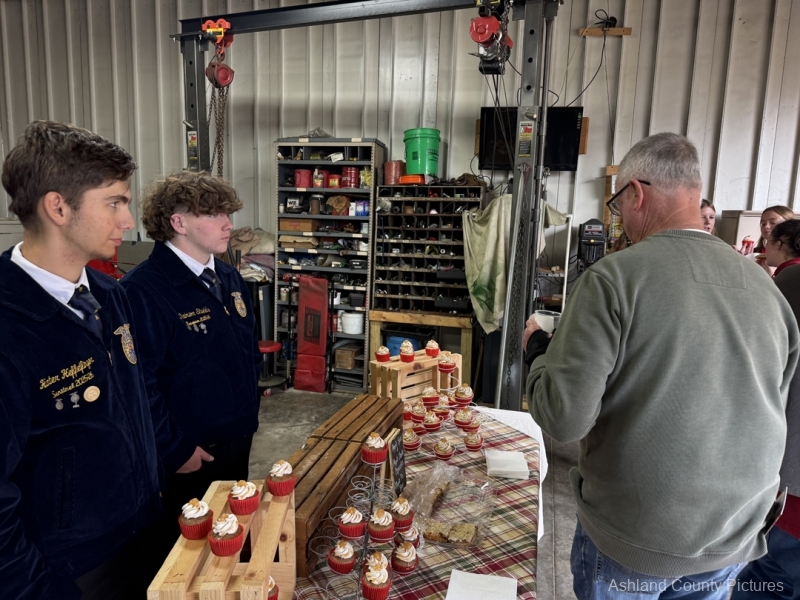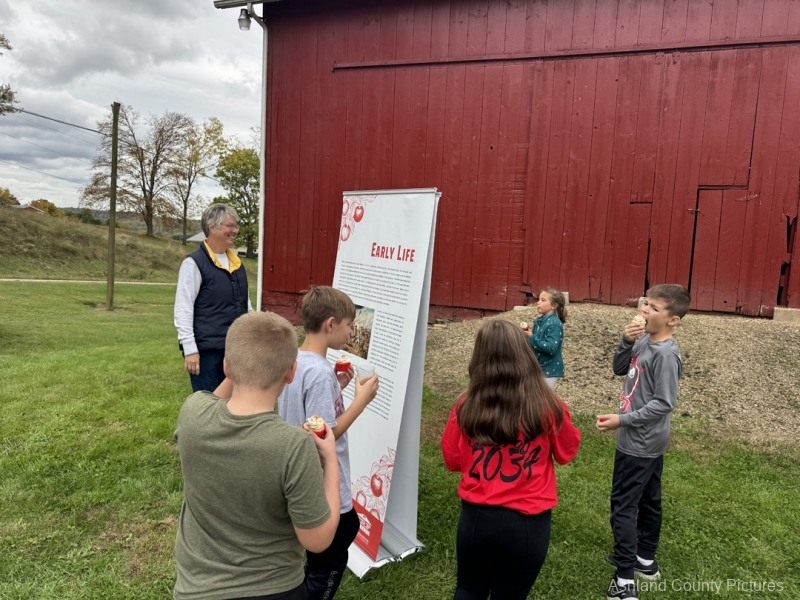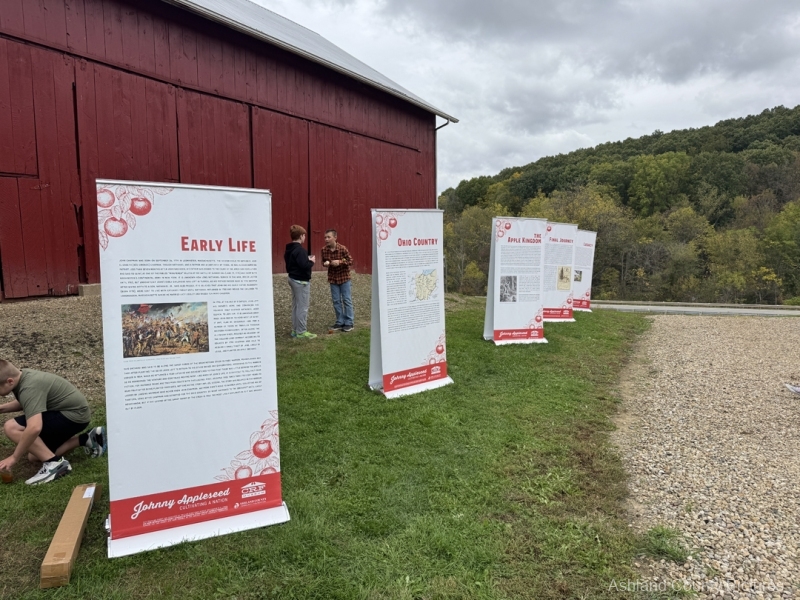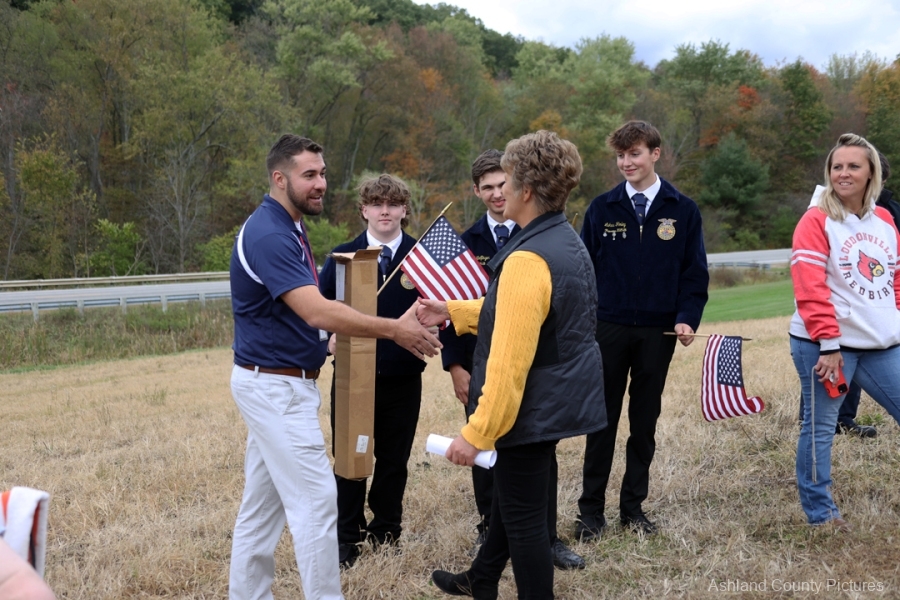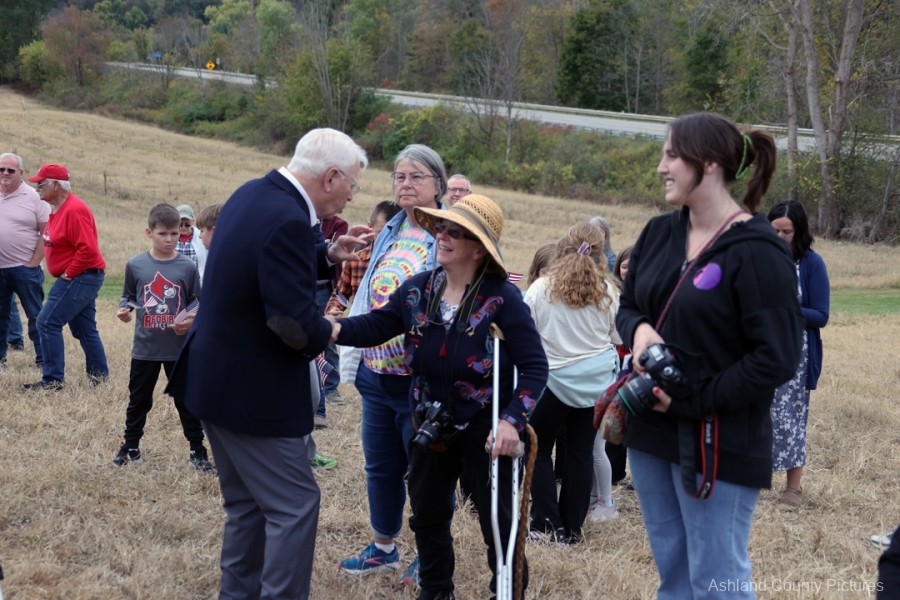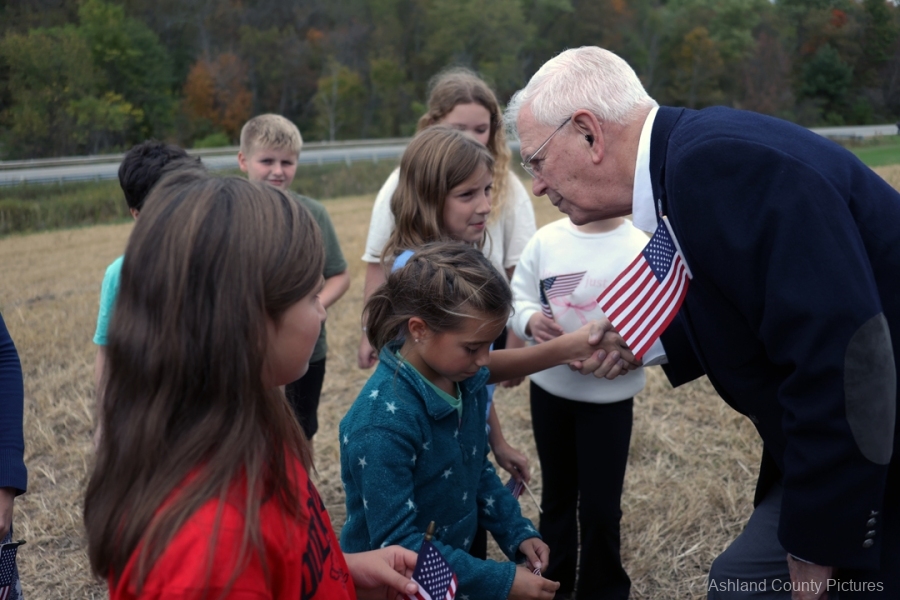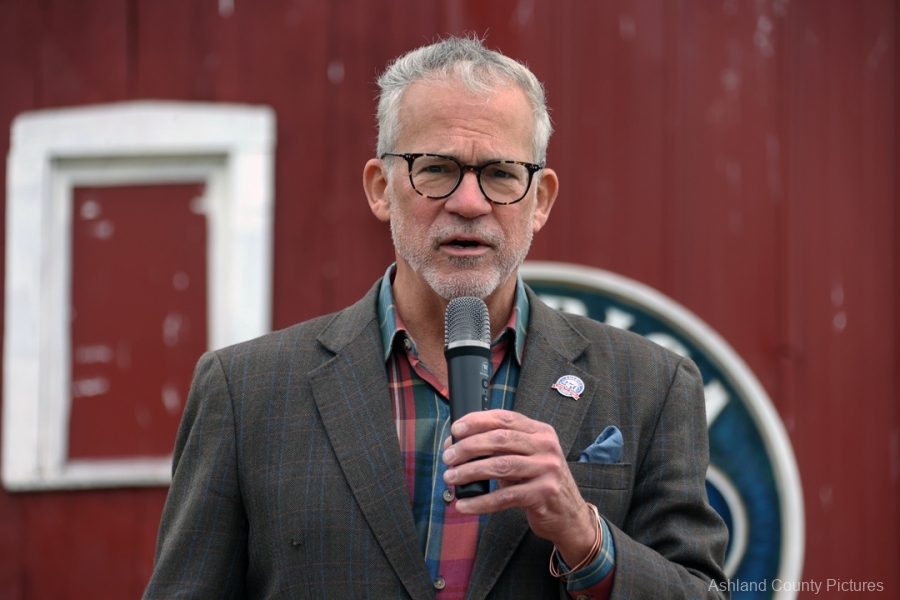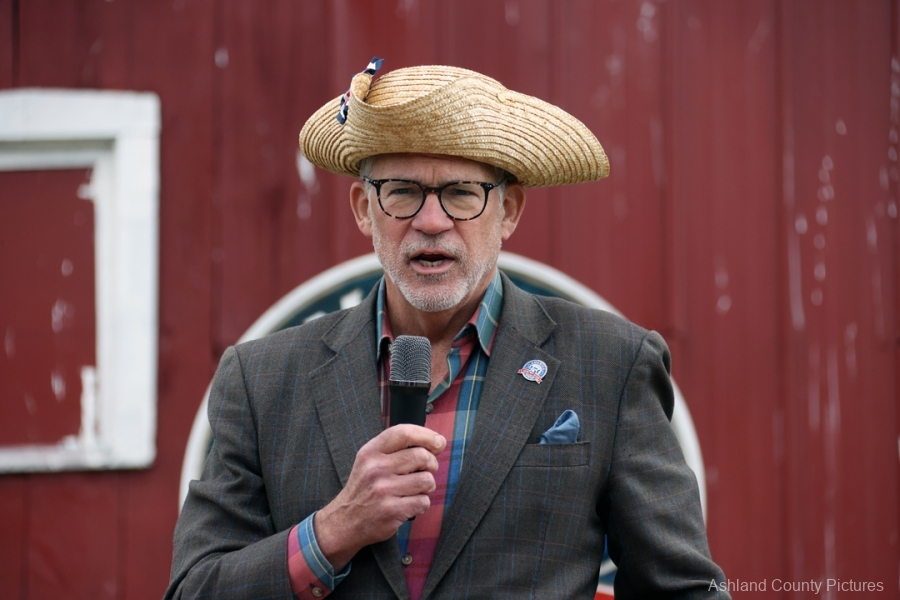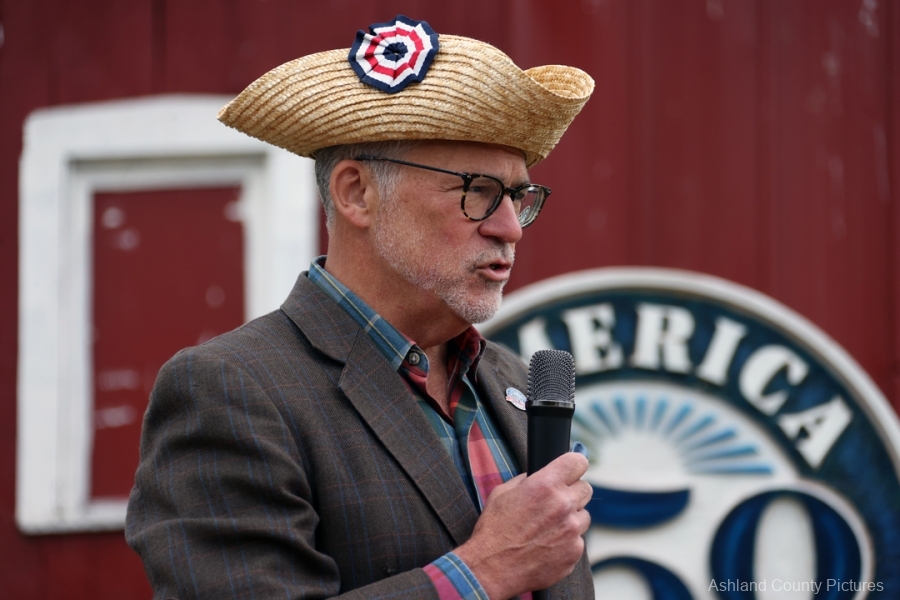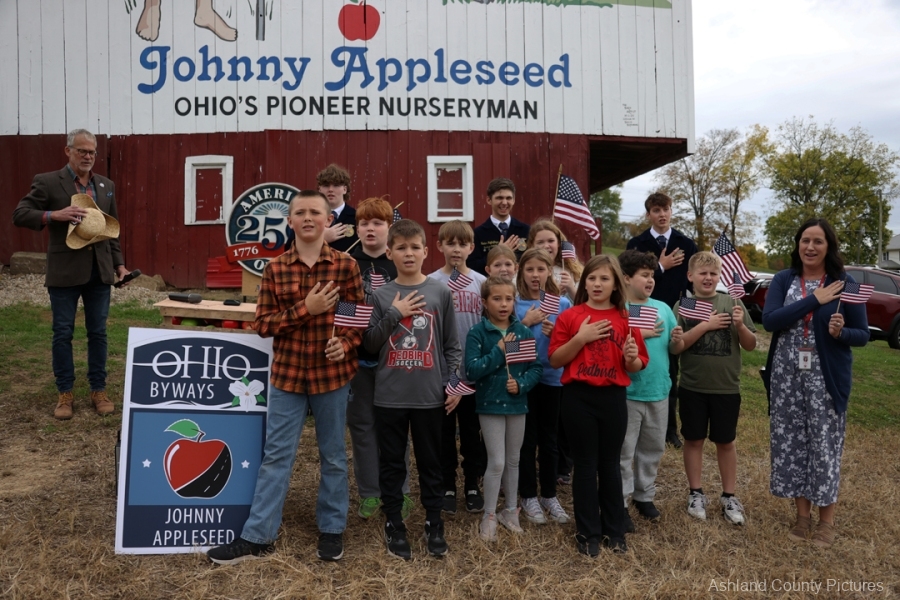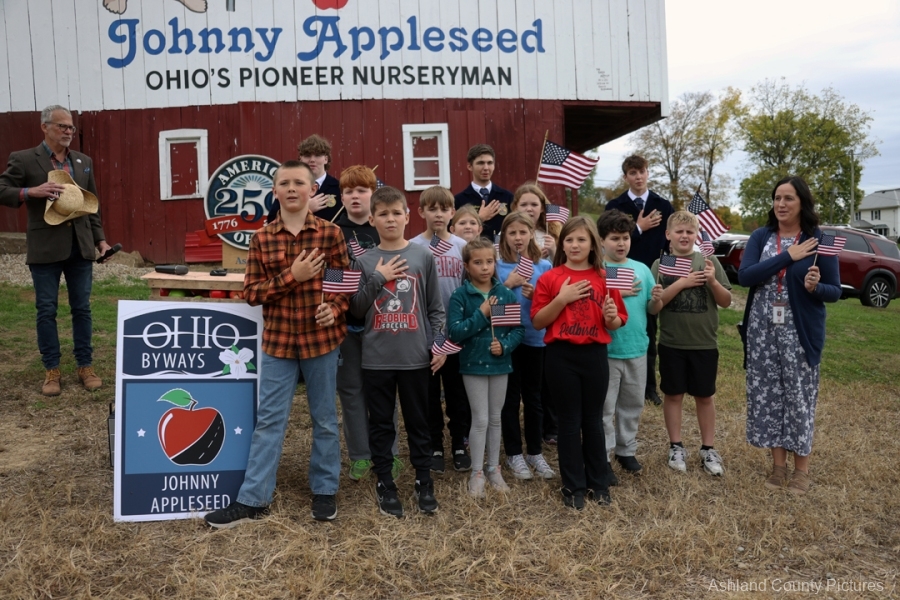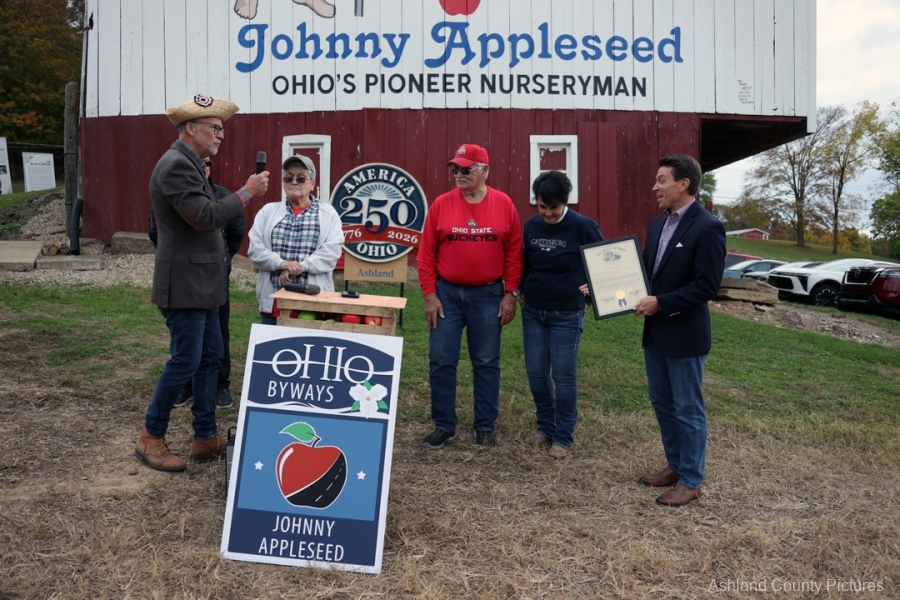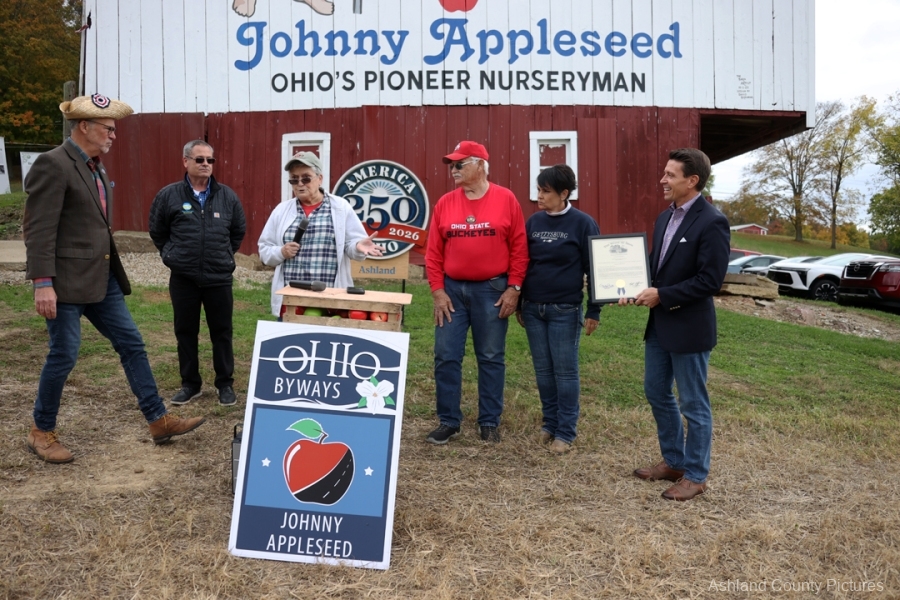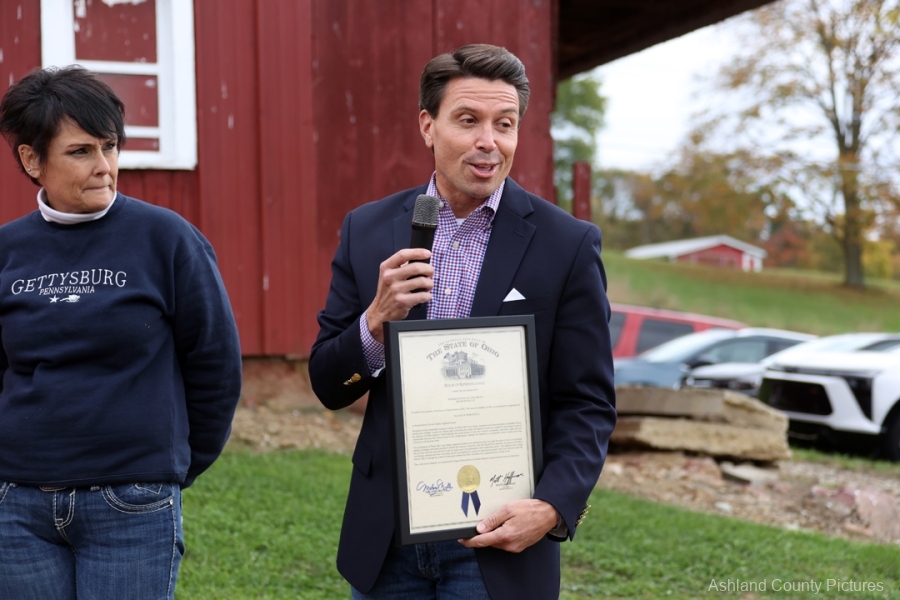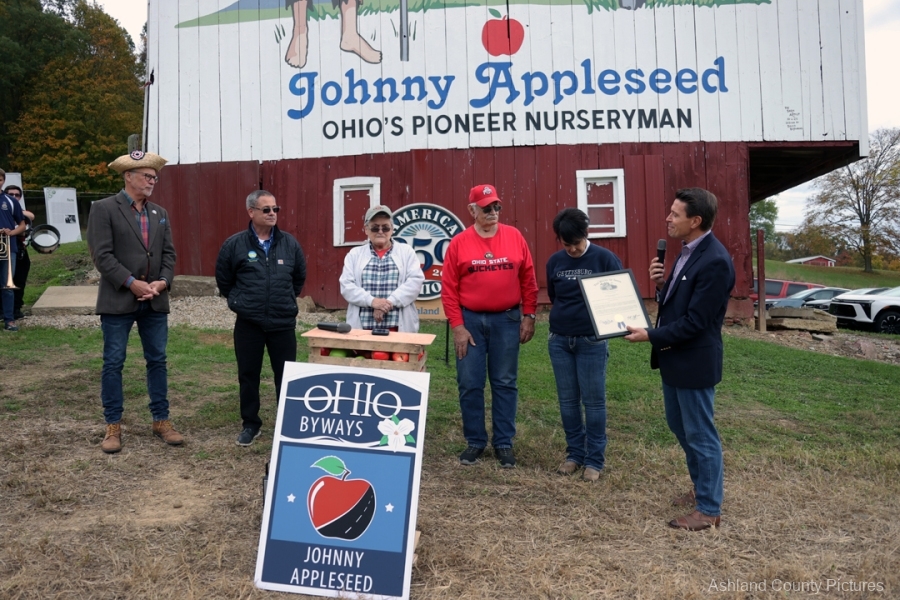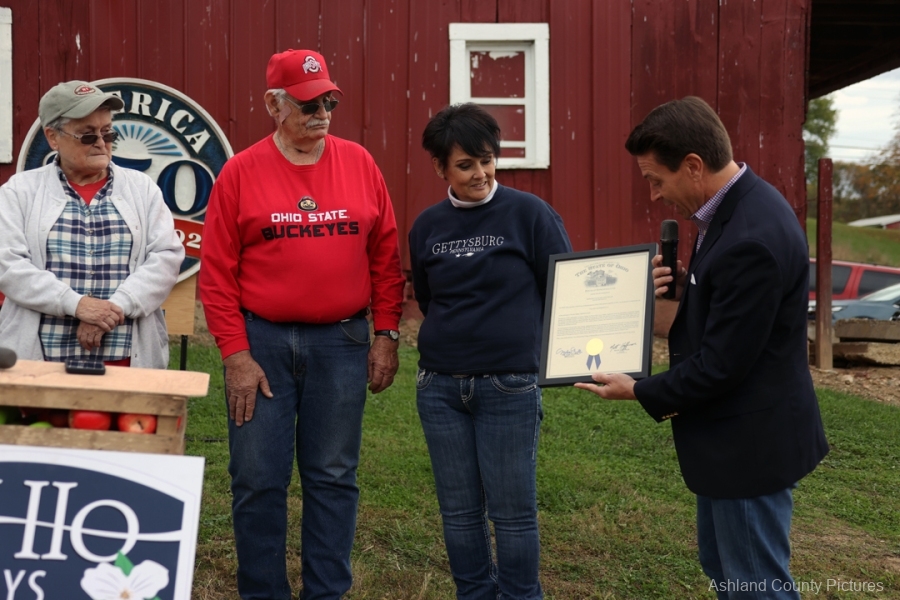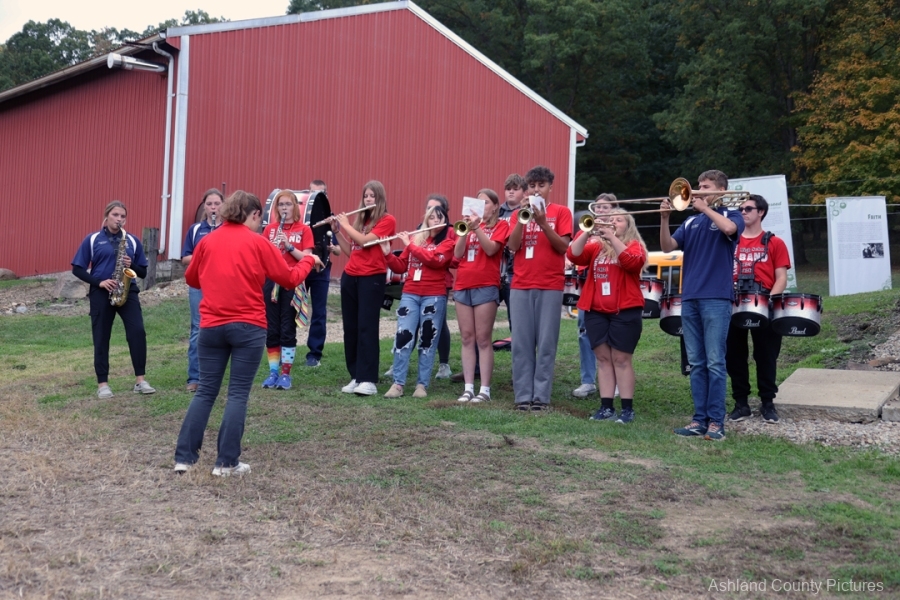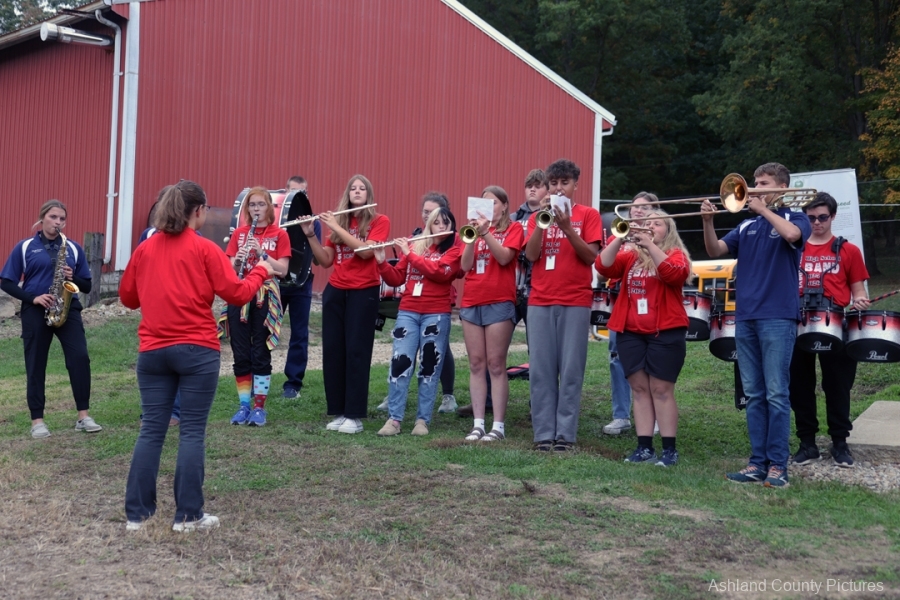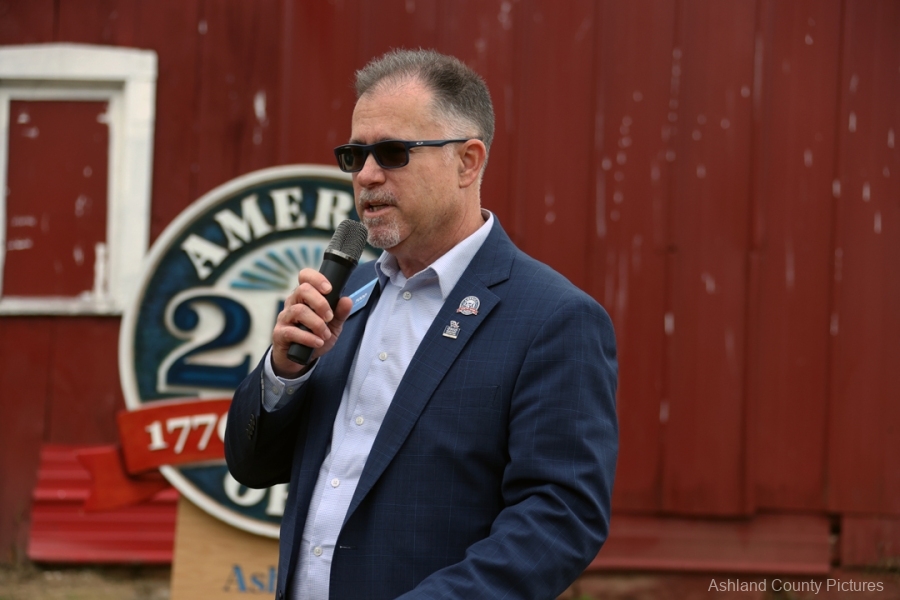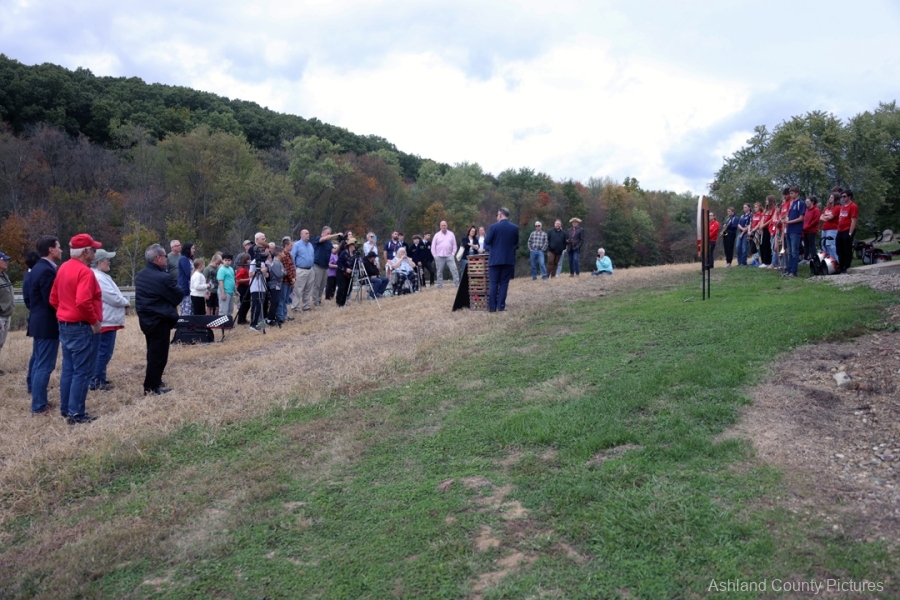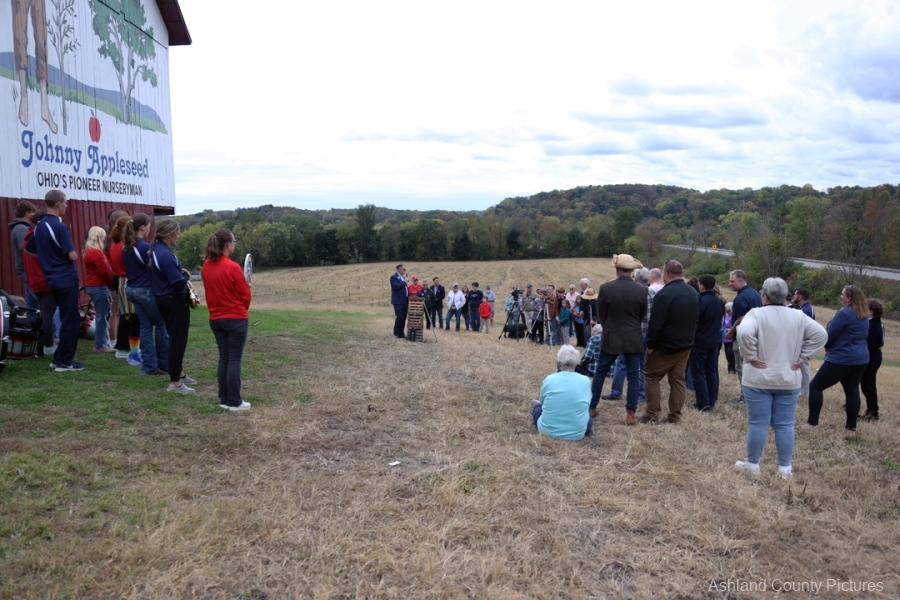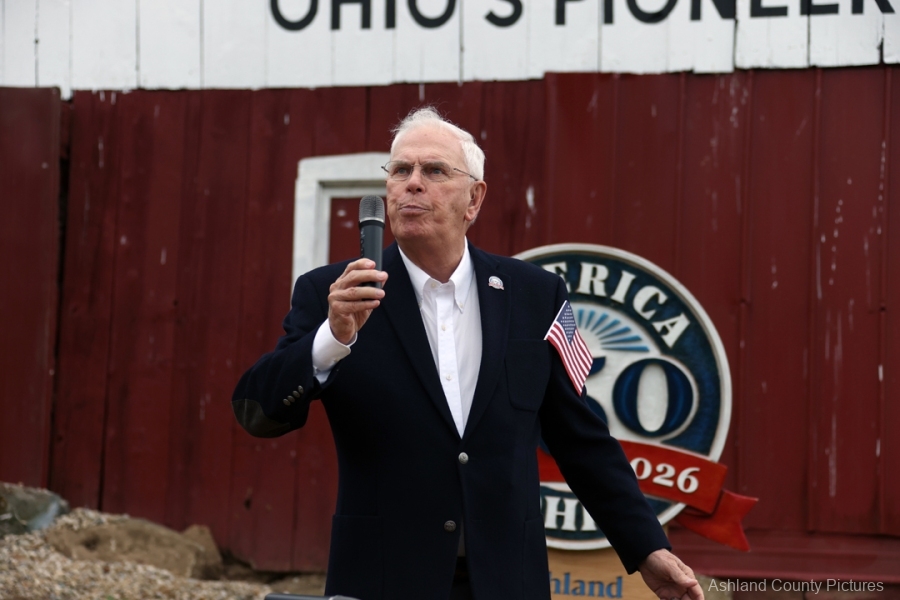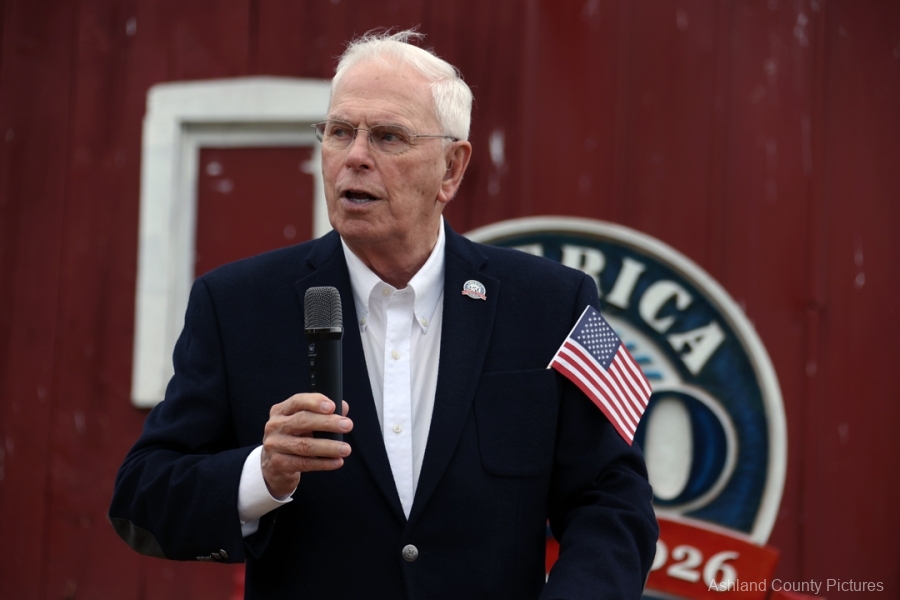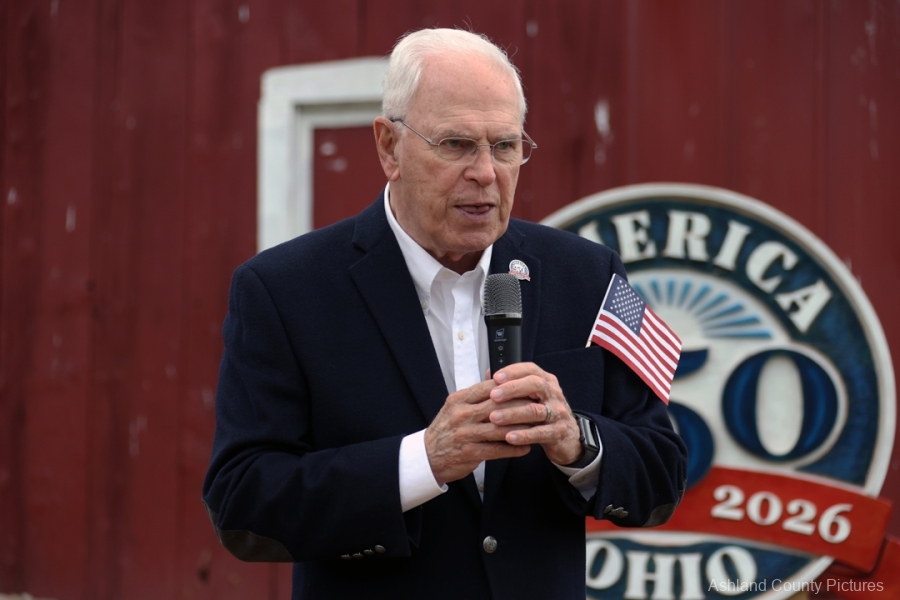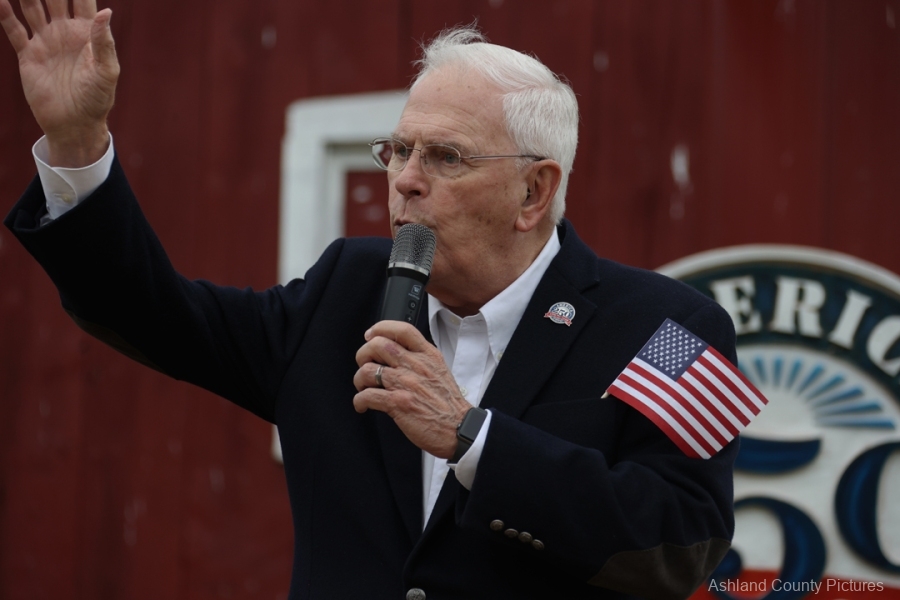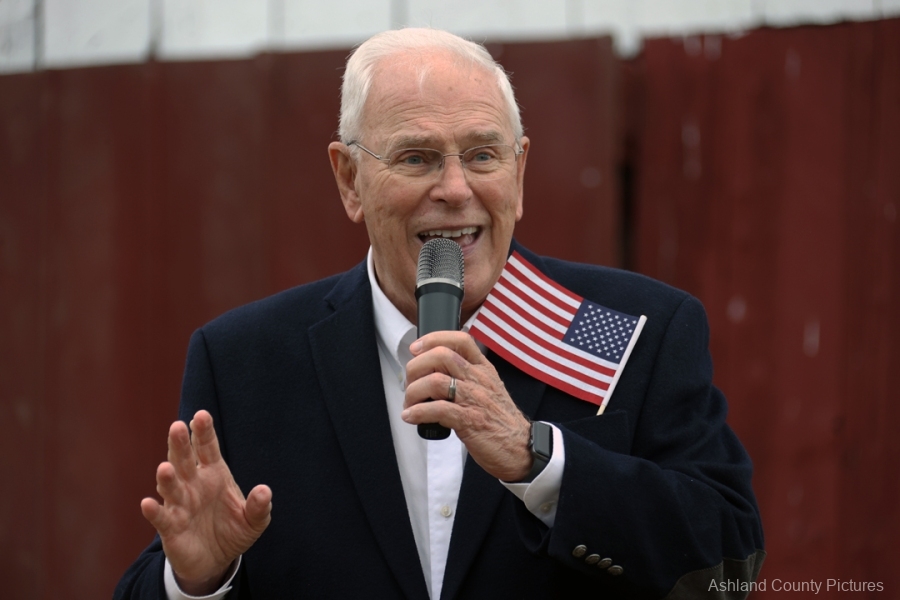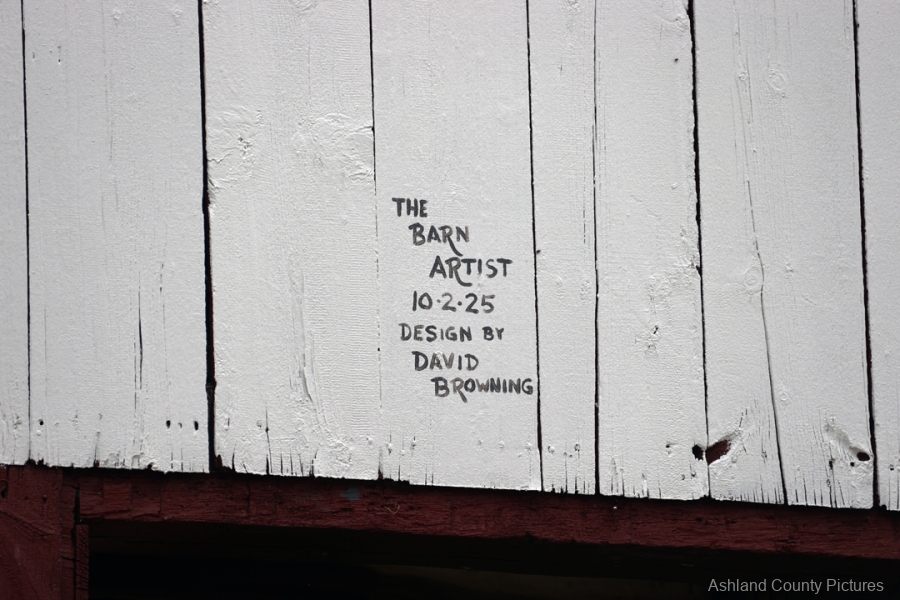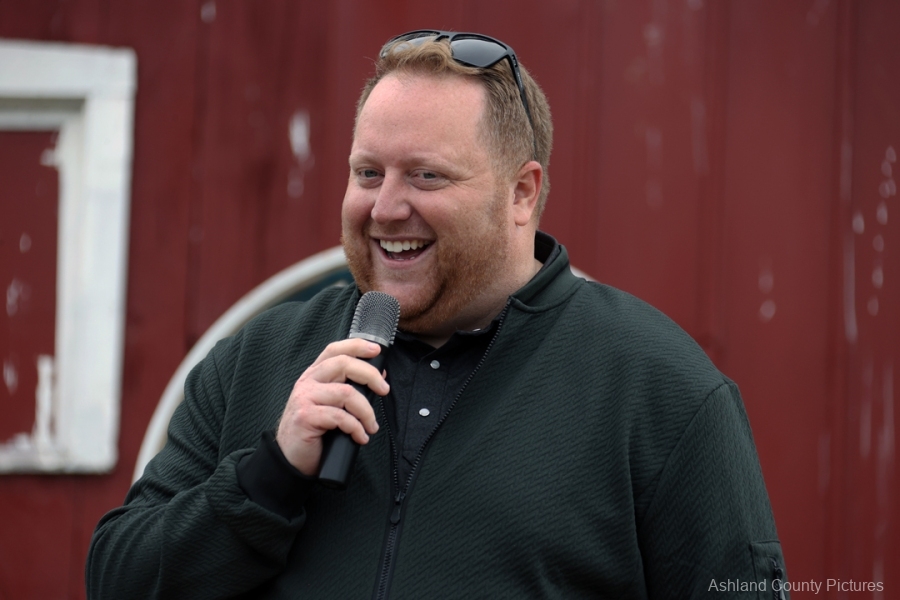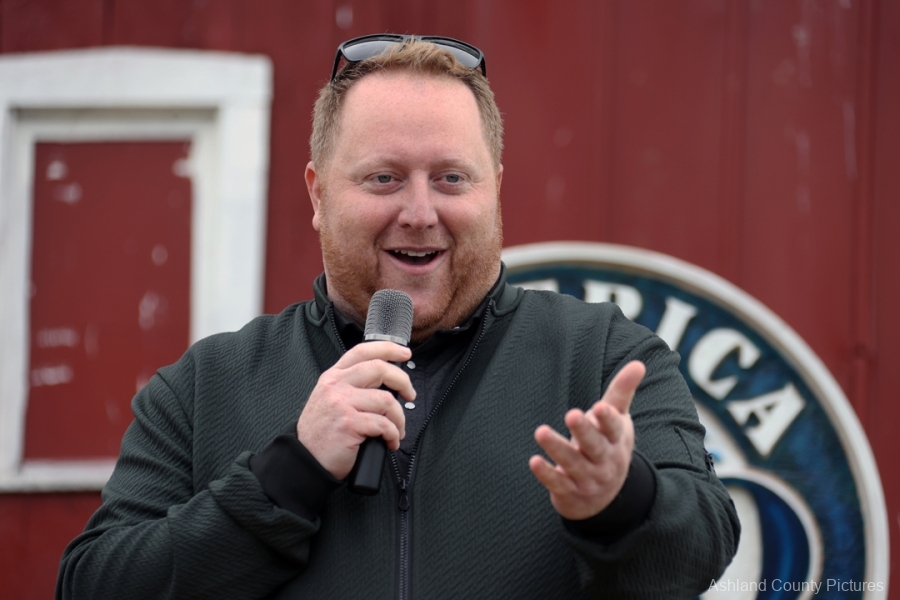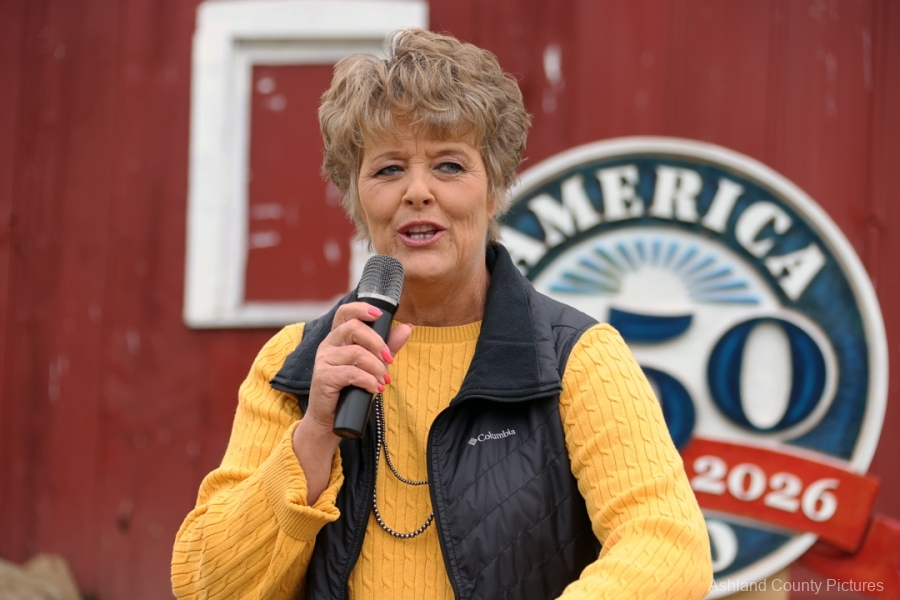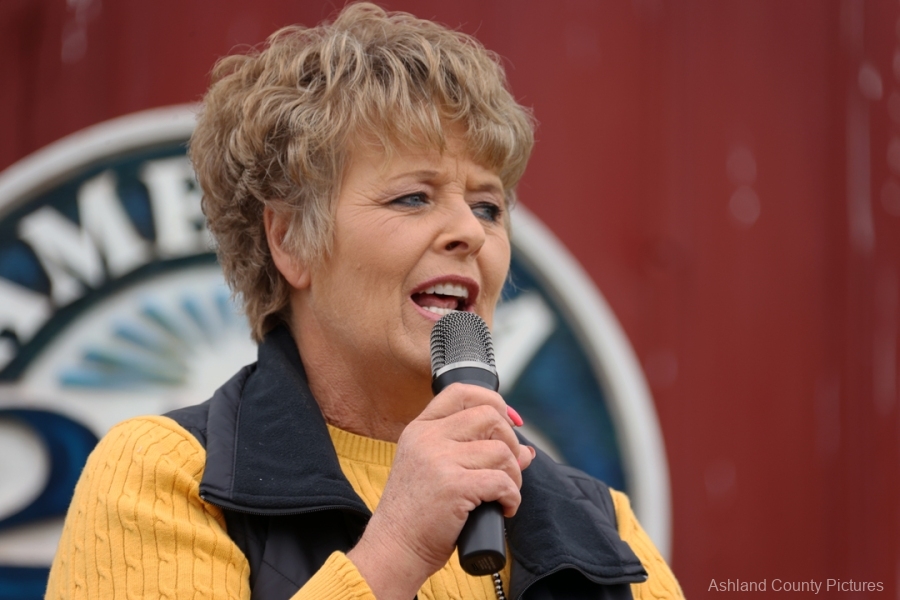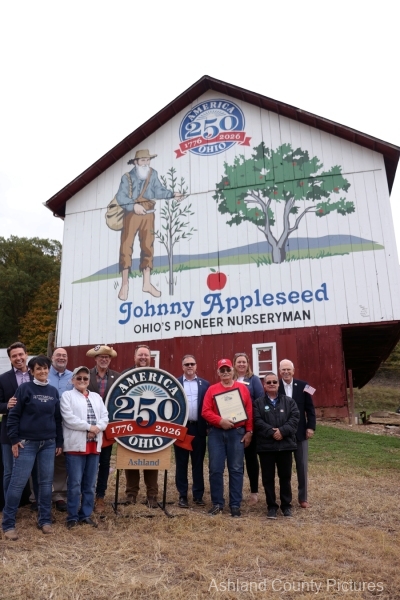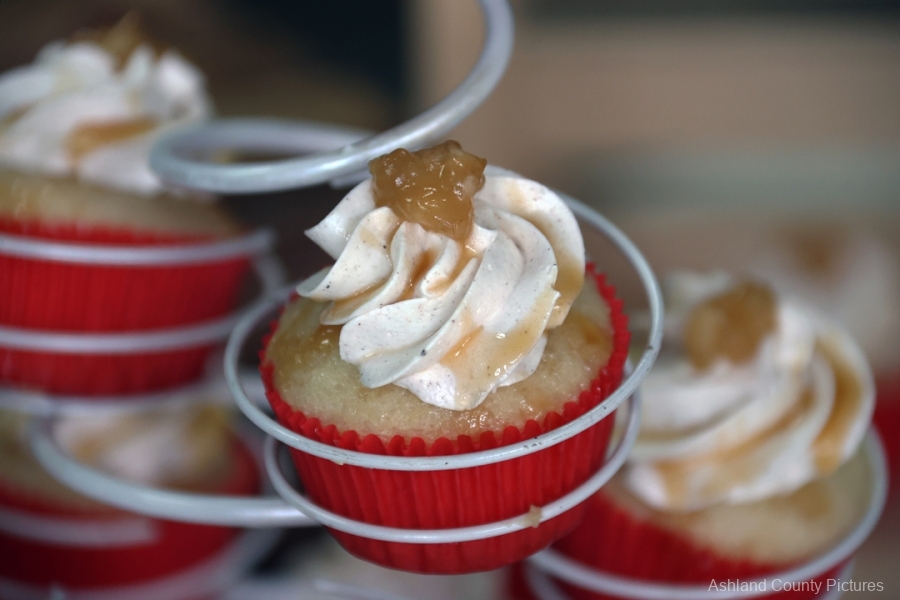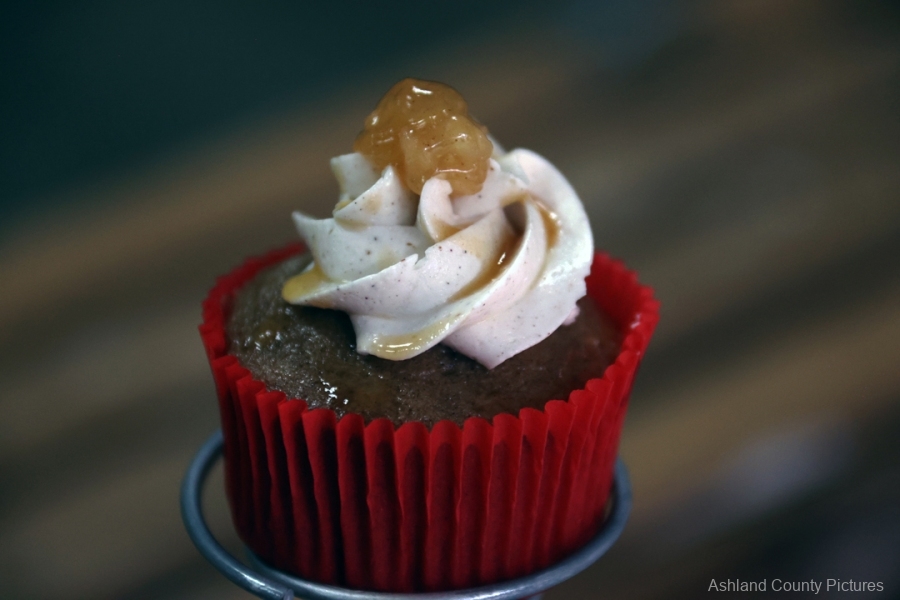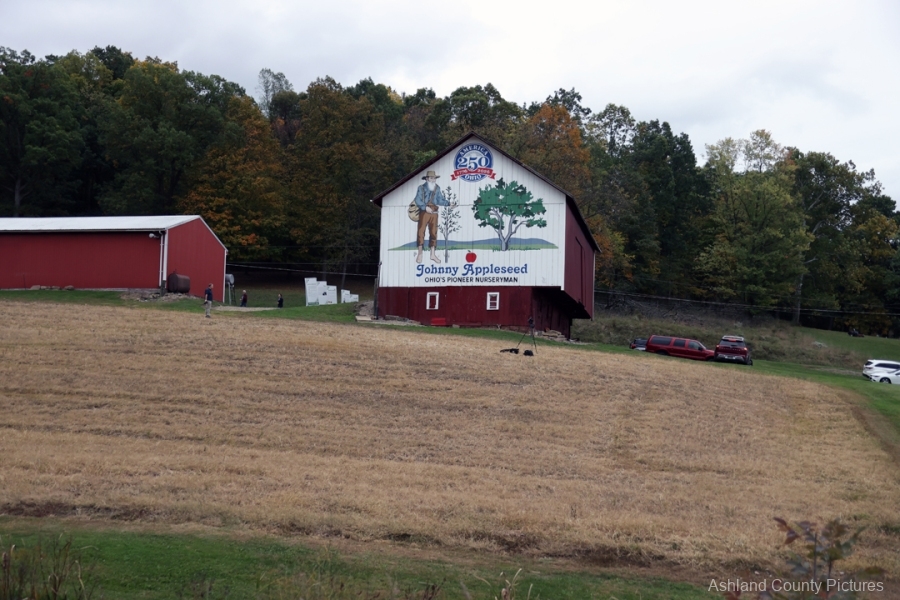Johnny Appleseed returns to the Mohican hills — in paint and pride
PERRYSVILLE, OH (Oct. 15, 2025) — With a rousing pledge from Loudonville-Perrysville fourth graders, a stirring rendition of “America the Beautiful” by the high school marching band, and cheers from a packed hillside crowd, Ashland County officially dedicated the Johnny Appleseed Barn Mural this afternoon on the Kline Farm—ground long tied to John Chapman’s life and legend.
Commissioned by America 250-Ohio in partnership with the Ohio History Connection and the Cleo Redd Fisher Museum, the towering mural was painted by famed “Barn Artist” Scott Hagan, whose Ohio Bicentennial logos became landmarks in all 88 counties two decades ago. The design—created by David Browning—honors Johnny Appleseed in the very place where his orchards once took root.
Wearing a tricorn hat with a grin to match, Doug Price, co-chair of the Ohio Semiquincentennial Commission (America 250-Ohio), welcomed the crowd and framed the day as a joyful launch into Ohio’s 250th-anniversary celebrations. “For the next 18 months, we’ll commemorate the faith, family, and history that shaped the greatest democracy in the world,” he said, inviting communities statewide to join in.
Mayor Matt Miller—who co-chairs Ashland County’s America 250 committee—presented barn owners Rich and Tammy Kline with a proclamation on behalf of State Rep. Melanie Miller and Ohio House Speaker Matt Huffman, praising the family’s “Redbird spirit” and calling the mural a gift to Perrysville, Ashland County, and the Buckeye State. “When July 4, 2026 rolls around,” the mayor promised, “we’re going to have one heck of a birthday party in Ashland County.”
Former Ohio Governor Ted Strickland, a member of the America 250-Ohio Commission, drew the crowd’s gaze to the mural, the rolling fields, and the band, calling the day “one to rejoice in.” He saluted Chapman’s generosity and love of nature and reminded listeners that being American “with all the opportunities that gives us” is a profound blessing.
Bringing the history into sharp local focus, Kenny Libben, curator and director of the Cleo Redd Fisher Museum, explained why this barn—and this farm—matter. Chapman, he noted, spent about half his life in north-central Ohio and frequently stayed with the Rice family, who once owned this very property. Under the Northwest Ordinance, early settlers had to prove up their claims with fruit trees—50 apples and 20 peaches within three years—and Chapman met that need by raising nurseries and selling (or giving) saplings to pioneer families. “He literally helped the farms here get started,” Libben said, pointing out that the slopes below the farmhouse were once Johnny’s orchards.
Libben also separated myth from truth with a smile: while tales of a tin-pot hat persist, first-hand accounts describe Chapman in wide-brimmed hand-me-downs—and even sporting a homemade visor that “basically invented the first baseball cap.”
Todd Clyman, executive director of America 250-Ohio, spotlighted the commission’s statewide barn-art program—one mural in each Ohio region celebrating themes from agriculture to the Underground Railroad—and thanked the team that brought Perrysville’s project to life, including former Ohio Bicentennial Commission leader Steve George.
Capping the dedication, Valerie Parks Graham, executive director of the Ohio Apple Marketing Program, tied Chapman’s legacy to today’s growers. Despite a weather-whiplash season, she said, Ohio’s orchards delivered—and she urged families to visit local farms for peak-season apples and cider. Then she sent the crowd off with a smile (and snacks): ending with, “I want to challenge each and every one of you to drink, swear, and lie. Now, I knew I’d get your attention, but I want to challenge you to drink from the fountain of happiness and friendship. Swear to do your very best. Lie down every night and thank God for giving you the opportunity to live in this free country “Drink from the fountain of happiness and friendship… and lie down each night thankful to live in this free country. Happy birthday, America.”
The afternoon closed with applause for the Kline family—“blessed,” as Tammy Kline put it, to share their barn with the community—and an invitation to view historic displays and enjoy cider and apple-themed treats in the barn.
As sun lit the fresh brushstrokes on the Kline Farm, one truth felt as crisp as a picked-today Honeycrisp: in the Mohican countryside Johnny Appleseed helped settle, his story is still planting seeds—of art, heritage, and neighborly pride—just in time for America’s 250th birthday.
